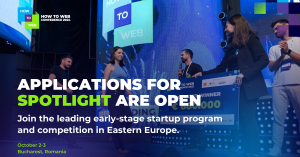Mostly known for tech giants like Samsung and LG, South Korea has been quietly developing its own startup ecosystem during the past few years. The country has been a leader in the field of innovation, research and development, and education for decades, and now has also become one of the latest nations to be swept up in the global startup boom, with a number of successful startups emerging from this new and innovative ecosystem.
The capital of Seoul already has a startup ecosystem worth $39 billion, with the South Korean city ranked in the Top 20 from 270 cities in the world. Now, the Asian country looks to elevate this development on an even bigger scale and throughout the rest of the country as well, with cities such as Busan and Daejeon as the next startups hubs.
And as showcased during Slush 2022 in Helsinki, the future for Korean startups is bright and full of potential – with more than 20 startups taking part in the K-STARTUP Demo Day and having the opportunity to introduce their products and solutions from verticals such as agritech, IoT, edtech, fintech, industry 4.0, e-commerce and more.
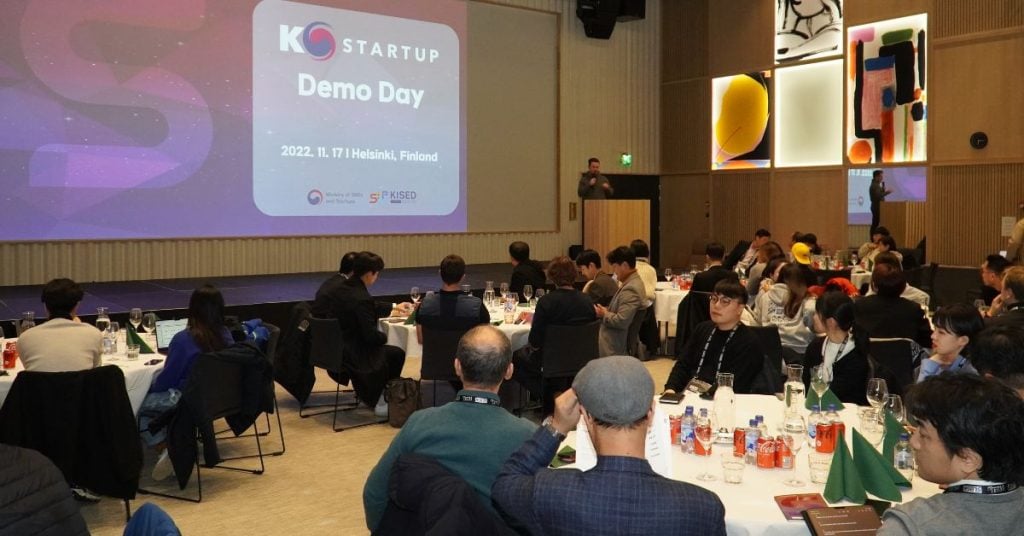
Out of the 20, three startups won the Global Media Awards – Coconut Silo, AimbeLab and Next Meta. During the event, The Recursive had the opportunity to sit down with the Korean startups and hear more about how innovation is taking over South Korea.
Introducing innovation to make logistics processes easier
Starting out as a spin off from auto giant Hyundai, Coconut Silo is a logistics startup that provides a digital platform that aims to optimize the logistics value chain for a wide range of businesses through a SaaS ecosystem.
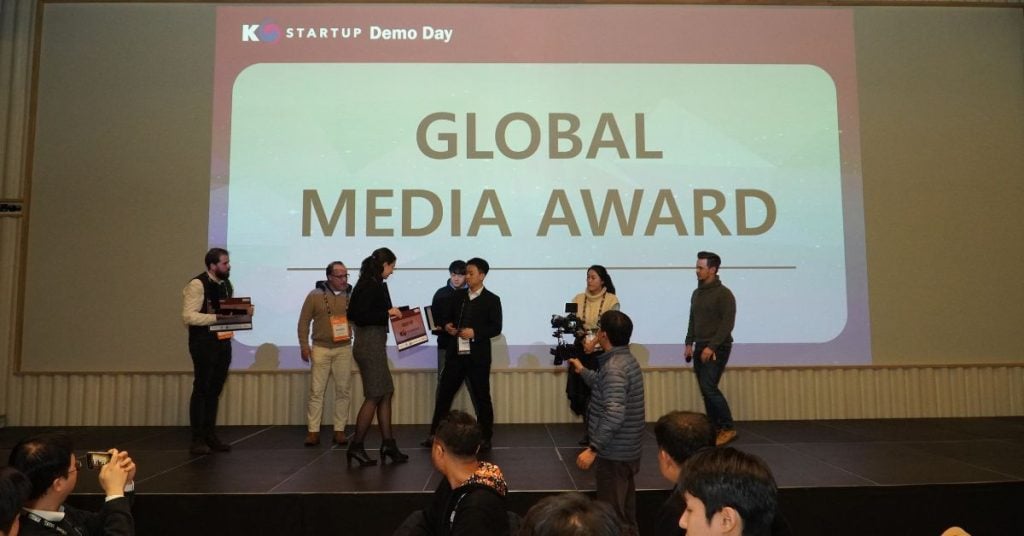
According to Coconut Silo’s COO Taewon Han, while the logistics industry is one of the slowest industries when it comes to adopting innovation, it is also the one with the biggest potential to do so.
“Our main goal is to connect all types of players in the logistics market which might be shippers, carriers, drivers, and so on. So based on AI and big data we enhance the efficiency and productivity. The logistics industry is also one of the slowest industries and it is still using old communication methods, which is hard to change. Additionally the industry is one of the biggest source of greenhouse emissions, so it needs a tech solutions that would allow it to go greener – and this is precisely one of the main problems that we are aiming to solve,” Han tells The Recursive.
While Coconut Silo currently has most of its activities in South America and Southeast Asia, European countries are next on its list for expansion.
One of the biggest advantages that the startup has seen when it comes to how the Korean startup ecosystem and its development, is the support that it gets from the government, but also giants such as Hyundai for example, which are providing the basis for young companies who are willing to make a difference with their solutions.
“The harsh economic situation contributed to the current investment market to be frozen, so its definitely a tough season for most startups. However, half of the fund that Is investing in Korean startups comes from the Korean government, so there are lots of ministries and government organizations that are helpjng startups to improve and grow. Based on that we do have stable and great circumstances and infrastructure that allow startups to grow,” Han points out.
Instilling the entrepreneurial mindset
Government-supported organizations such as KISED (Korea Institute of Startup & Entrepreneurship Development) have been instrumental to the development of the country’s ecosystem, and the next founder on the list comes precisely from this environment.
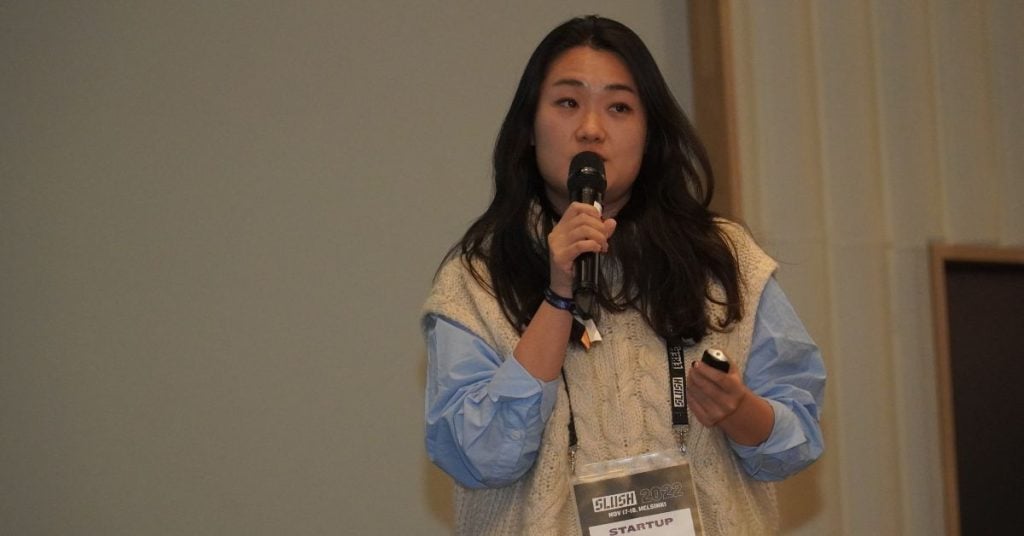
Having a background in working with startups, for Next Meta’s CEO and founder Jinkyo Choi the next logical step was to establish a startup herself and combine her interests in entrepreneurship and education.
Aiming to revolutionize the education system, Choi founded Next Meta as an edtech startups which looks to bring innovation and interactive learning for the next generation.
“We try to make leaning interactive and fun for the next generation – so basically what we do is to break down the traditionally long 60 or 90-minutes long educational video into mobile-oriented short form and interactive content. So, instead of watching these long videos with no interactions, we provide short videos and lots of active learning modules to convert that lesson into a series of interactive content,” Choi tells The Recursive.
For Choi, the idea for Next Meta came from witnessing the limitations that online learning has and therefore chose to focus on how to make non-live online classes much more interactive and fun for those that are involved in the process.
“Out target market is B2B. We don’t create the content – there are schools and educational organizations that have created tons of content, so we try to make this content interactive. We finished our seed round investment and we now have been focusing on the MVP development – we already have three clients and now we have more than 200 learners that are using our product,” Choi explains.
When it comes to how Korean startups can develop even more and realize their potential, Choi says that while the infrastructure for them succeed is there, what is still lacking at the moment is a much bigger adoption of the entrepreneurial mindset.
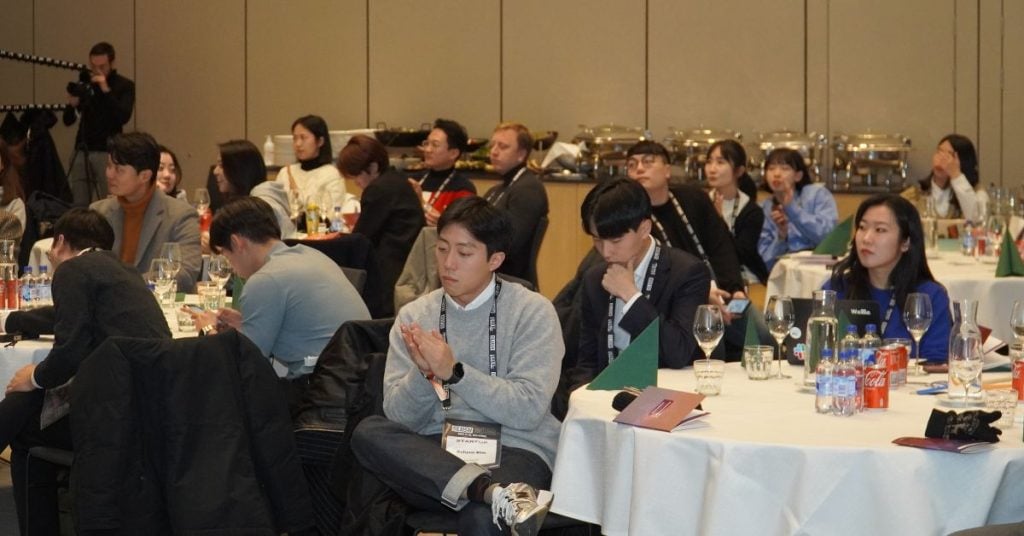
“For example, there are programs which provide almost $80,000 in grants so its easy to get it – and in terms of the size of the money no other country is providing that much money just for ideas – no equity, just grants. So while the infrastructure is there, what we are missing is the entrepreneurial mindset and development – while the focus is on startups, is almost no support programs for the community builders like us, because if you want to be a good student you need to have a good teacher and the teachers in this case are the startup accelerators,” Choi explains.
Going global and expanding to new markets
Another challenge for many Korean startups is that while they have done a lot in the country, it is still a small market since and therefore this would be the second level for the Korean ecosystem, Choi adds.
The next startup has such ambitions and has already taken the steps into this direction, by targeting Europe and the US as its next markets. AimbeLab is an agritech startup and a provider of AI-based feed procurement systems, which offers services such as an auto-feed ordering system, farm manager app, silo management, and more.
AimbeLab’s communicator Sein Kwon is a second-generation farmer himself, and on a mission to accelerate the digital transformation of the livestock industry in the country. And offering a solution that provides which provides easy livestock management from the users’ smartphone is the first step.
“The livestock industry currently has a lots of problems in terms of lack of digital implementation, and it is the one of largest greenhouse gas emitting industries. So, with this problem in mind, we provided a comprehensive feed management platform that makes these management processes more efficient. We also implemented the data that we gathered through out IoT device products from farms and livestock feed companies in order to to create much better data solutions,” Kwon tells The Recursive.
For AimbeLab, its digital platform is the very beginning of the changes that it aspires to make in the industry, and it is already planning to extend their solution throughout the whole value chain of the livestock industry.
“We are mostly looking for feed companeis that are willing to reduce their costs, increase their productivity and increase their optimization in management so those are our main customers,” Kwon explains, adding that there is lot of excitement when it comes to the further modernization of Korean agriculture.
“Digital transformation in the agriculture sector is not an easy task – it is one of those industries which is very conservative to make any innovation, but is very much needed for sustainability. So there are many attempts from Korean startups, many collaborations with companies, with the government and so on, and we are definitely optimistic about what is going to happen in the future,” Kwon concludes.
Brief overview of other Korean startups that participated at the K-STARTUP Demo Day
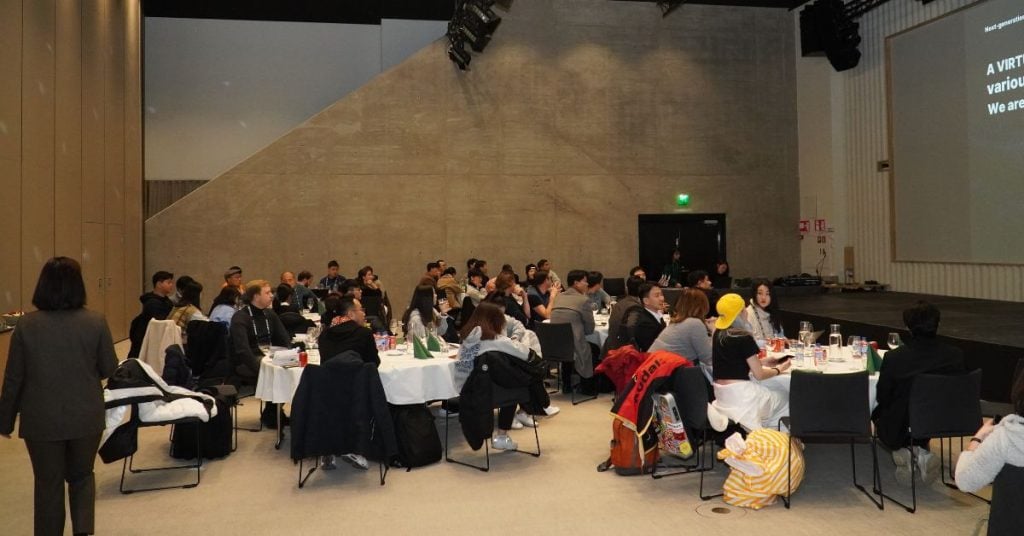
Avirtual is a medtech startup that has a produced a device steriliser which uses air circulation to sterilise devices used in surgeries or dental care.
Bottless is a Korean startup that uses natural rubber and paper box instead of plastic bottles, and is looking to revolutionize plastic bottling by using materials that take from six to 30 months to decompose.
Corevalue is a telemedicine startup that has a device/camera which can be used to take images from patients at their homes and then send to doctors and medical professionals for telehealth diagnosis.
CRTLab is a AI-based platform which generates logos, corporate branding reports and designs, and looks to solves problems with branding and corporate logos.
DDIBS is a ML-based platform that uses dynamic price algorithms to helps sellers with pre-sales market research, as well as to find the right product prices.
inDJ is streaming radio app that detects the emotions of its users and suggest them what type of music to listen to (mostly focused on K-pop), based on their mood.
KEVIT is a EV startup that provides users with a software/hardware solution through which they can set a price based on the usage and publish their charging stations online.
LBStech is a data collecting and sales platform, used for robot delivery services based on walkway data, accessibility and obstacle information.
Lighters Company’s solution is called Kooky – a K-pop platform and community space for international K-pop fans, and help them hold K-pop related events.
Mediaplus is a marketplace where pharmaceutical companies can match with clinical trial partners, helping both parties to finding partners for clinical trials.
Mobillo is a startup that provides high-tech package of sensors and alarms which can be retrofitted to any heavy machinery.
Paprika is a platform that rewards survey participants and guarantees anonymity for those participating in different target groups.
RebuilderAI is an AI tool which which can build a 3D image of any object and remove the floor via a video on the users’ phone in just three minutes.
Rolling Seeds is a UX PLAY-based education/entertainment game for children and families which combines an app on any screen and a physical box with RFID-tagged chips to play engaging games.
Rudder is a platform for those that want to find friends with whom they could hang out, go for drinks, or just enjoy hobbies.
SicPama is an QR code app that allows users to see go over menu items and split or share restaurant bills.
Sunny Side Up is a platform that provides pet owners with direct access to vets, diagnosis, or advices for their pets.




